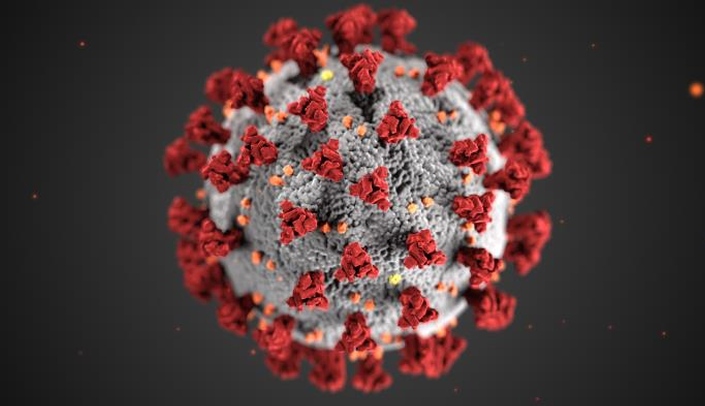Researchers at the UNMC have found that major adverse renal or cardiac events are much more common in solid organ transplant recipients after being diagnosed with COVID-19 than in the general population.
This disparity widens among men, who are more likely to experience a bad outcome after contracting COVID-19 than women.
 |
| Roslyn Mannon, MD |
Those findings were published in the October issue of the American Journal of Transplantation by a team of researchers led by Roslyn Mannon, MD, professor of medicine and associate chief of research in the UNMC Division of Nephrology.
The article revealed that nearly 40 percent of men who had a solid organ transplant had a major adverse renal or cardiac event compared to 34 percent of women.
"We are not entirely clear why this is the case, but it may be related to the impact of immunosuppression and immune dysfunction coupled with the hormonal changes that occur with aging," Dr. Mannon said.
"Additional differences were seen across age groups, and it was found they were more common in kidney and heart recipients than in lung and liver recipients. However, rates of organ rejection after a COVID-19 diagnosis were highest in lung and heart recipients," she said.
Dr. Mannon and a group of investigators gleaned these findings from data they analyzed from the National Center for Advancing Translational Sciences-funded National COVID Cohort Collaborative, otherwise known as the N3C Data Enclave. The N3C is a health record repository containing the largest, most representative U.S. cohort of COVID-19 cases and controls to date.
Dr. Mannon said her team analyzed data from Jan. 1, 2020, through June 2021 and were able to sort out 13,000 de-identified solid organ transplant recipients from the 2 million U.S. individuals during that time frame who were documented as having COVID-19.
The team then looked at gender differences and discovered the biological difference in major adverse renal or cardiac events between men and women who had a solid organ transplant.
The study would not have been possible without the N3C Data Enclave, which allowed the team to make a rapid assessment of outcomes, Dr. Mannon said.
The N3C Data Enclave is a secure platform through which the clinical data provided by contributing members is stored in a harmonized format. The data itself can only be accessed through a secure cloud portal hosted by NCATS and cannot be downloaded or removed.
Collaborative efforts are organized across "domain teams," such as the immunosuppressed/compromised team co-led by Dr. Mannon, with particular interest in transplantation outcomes. This facilitates the sharing of ideas, resources and knowledge to support team science.
"As compared to registries that only provide certain information, such as whether or not a patient died, the N3C Data Enclave is able to curate more specific information through electronic medical record data," Dr. Mannon said.
"Knowing medications, lab values, procedures — including whether or not a patient was put on a ventilator — and detection of major adverse cardiac events really gives us a richer understanding of the impact of COVID-19 in people with solid organ transplants," she said.
Dr. Mannon said she plans to continue to look into other aspects of the data of patients with a solid organ transplant, including the role of female sex hormones and effects of hormone replacement therapy, as well as vaccination impact in these patients and other outcomes throughout the pandemic.
Researchers wanting to get involved can contact Jerrod Anzalone at alfred.anzalone@unmc.edu or 402-836-9578.

We have kidney transplantation in India in more than 350 patients who recovered from COVID-19 without any adverse outcome related to COVID19